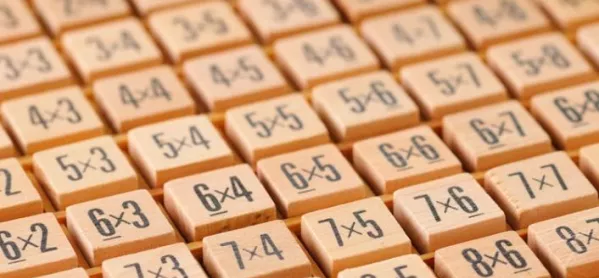Schools have been told they can try out the Year 4 times tables check from today, before the test becomes mandatory next year.
Access to the times tables check system, which includes a pupil ‘try it out’ area, will enable schools to familiarise themselves with the check, the Standards and Testing Agency guidance says.
Need to know: The times table check
Opinion: ‘The new times tables tests don’t test depth of knowledge - it’s purely recall’
Headteacher’s view: ‘The fact is, learning times tables does pupils a world of good’
The times table check has been controversial, with the NAHT headteachers’ union branding it “an enormous waste of money”.
And former chief maths adviser Dame Celia Hoyles has also raised concerns that the checks could cause anxiety and waste time and money.
Times tables checks: preparation
There will be a voluntary pilot of the on-screen assessment, known by the Department for Education as the multiplication tables check or MTC, between 10 June and 28 June 2019. The test will be mandatory in the 2019-20 school year.
The data from the pilot will not be published but schools that volunteer to take part will get their own results.
The check will focus on the 6, 7, 8, 9 and 12 times tables because, the DfE says, “these have been determined to be the most difficult multiplication tables”. There will be 25 questions and pupils will be given six seconds to answer each question.
Each pupil’s score out of 25 will be reported to the school - there will be no expected standard threshold.
Nick Gibb, schools minister, said: “Maths touches so many aspects of everyday life so it’s hugely important that young people are equipped with the ability to perform simple calculations in their heads. Not only will this help them cope with the challenges of maths at secondary school, it will also stand them in good stead for the rest of their lives.
“That’s why we are bringing in this new check - to make sure all pupils leave primary school knowing their times tables by heart. Just as the phonics screening check has driven up literacy rates in primary schools, so this check will have a similar effect for basic maths.
“By familiarising themselves with the check, teachers will have the opportunity to be a part of the development process to make sure the check is both effective and user-friendly.”




